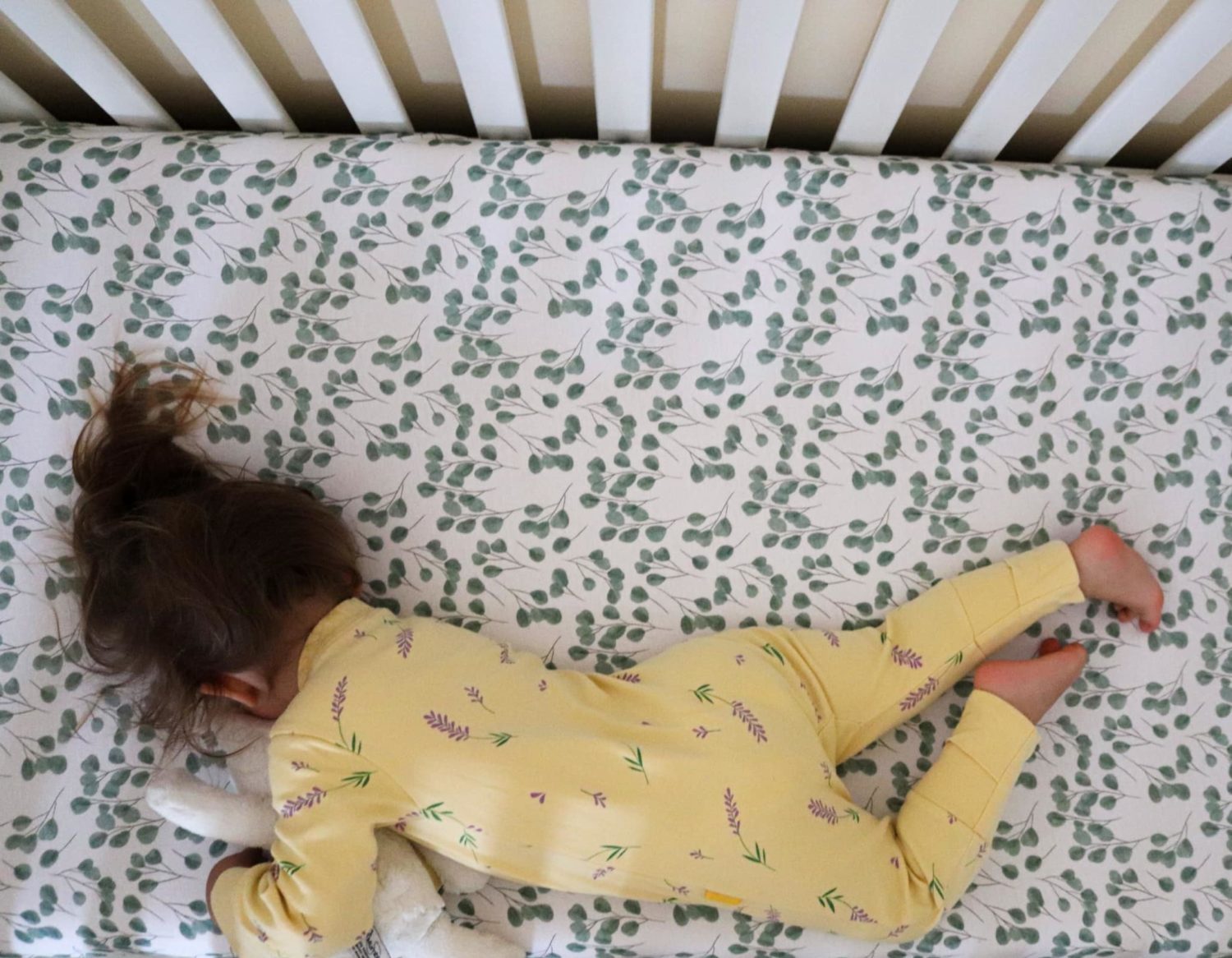Some nap transitions happen naturally and some need input from you–as with most things sleep, knowledge is power. Your baby will go through so many nap transitions in the first 18 months – from what feels like a million naps a day to a single one by 15–18 months!

At six to eight months, we see three to four naps per day, ideally, with one to two at least 40–45 minutes long, as well as one nap, ideally the second one of at least an hour. I always wake after an hour and half for nap 1 to make sure there is enough room for nap 2. If in time there is only one long nap tendency, I will cut nap 1 to one hour to lengthen and strengthen nap 2 –this is the nap we prioritise, as it carries the can until bedtime and remains until closer to age three. Transitioning from three to four naps is quite natural – your child will start to be able to stay awake longer as the day unfolds, and as you calibrate the day you will slowly retire the extra naps, leaving you with two naps by eight months plus and a three-to-four-hour wake period before bedtime.
Between 8 and 15 months we will generally see two naps per day – one nap of, ideally, at least 40–45 minutes and one of at least an hour. At this stage, while on two naps per day, each nap could be of equal duration, but if your child appears only able to have one long nap, then aim for this to be nap 2 by potentially waking on nap 1 after an hour or 45 minutes, depending, to allow this to happen. Strengthening nap 2 can help avoid being overtired at bedtime and reduce the risk of unnecessary night waking and early rising.
The 15–18month age range is tricky, as we start to see a final transition from two daytime sleeps to one. It’s important not to rush this transition and to only make it if you are seeing indications of the end of two naps – this is typically refusing either nap 1 or 2. Generally, if your child is this age and routinely visibly tired by 10 a.m. each day then they still need two naps – but you may have to limit nap 1 to 20–45 minutes, depending, for a second nap to be achievable. Again, ideally nap 2 is at least an hour but also finishing as close to 3–3.30 p.m. as possible so the nap-gap dynamic is observed, preserving your overall sleep goals.
For18 months 2½ years one nap is generally appropriate, ranging from at least one to two hours per day. The retained nap is the original nap 2, and it is important that this nap happens close to 1 p.m. – even though sometimes your child may seem tired sooner– to observe the best balance for sleep pressure that enables more restful night-time sleep. So, it should start at around 1 p.m. and finish as close to 2–3 p.m. as possible, observing the nap-gap dynamic.
Finally, somewhere from two-and-a-half to three years your child will start to drop their day sleep. When your child makes this final transition to no naps, they may either start to sleep less by day – 45 minutes to an hour and a half – or they may just start to skip days. It can take some time for your child to cope without daytime sleep and bringing forward bedtime to 6–7 p.m. can help to offset a cycle of overtiredness and reduce the risk of night-time activity during this transition.
Without a nap, providing quiet time around the time the nap would have routinely been offered is also a good solution, allowing your child to ‘rest’. Lying on the couch and reading or listening to audiobooks can help them take a break from the busyness of days when they no longer need a sleep.
One of the things that you can try to do to improve your baby’s rest when their sleeping routine is changing is to provide them with comfy bedding and clothes made of skin-friendly fabric, like organic cotton, that will take care of their sensitive skin. On our site, you can find a wide variety of 100% Organic Cotton bed linen that will surely make your baby sleep on cloud nine.
Lucy Wolfe, HDip RM, MA is a Sleep Consultant, Co-Creational Relationship Mentor, Author of The Baby Sleep Solution and All About the Baby Sleep Solution, creator of “Sleep Through”, a natural bed and body sleep spray and relaxing rub, and Mum of four. She runs a private sleep consulting practice and online courses where she provides knowledge, expertise, and valuable support to families around the world. See www.sleepmatters.ie